Weight of Number 3, 4, 5, 6, 7, 8, 9 & 10 Rebar Per Foot
Important Point
The weight of rebar or reinforcement bars per foot can vary depending on the size and type of rebar.
The weight is generally calculated in kilograms per meter (kg/m) or pounds per foot (lb/ft).
Here are we provide some of the approximate weights in kilograms per foot for common rebar sizes-
#3 Rebar
Also known as 10M, this rebar has a diameter of 3/8 inch (9.525 mm) and weighs around 0.56 kg per foot.
#4 Rebar
Also known as 13M, this rebar has a diameter of 1/2 inch (12.7 mm) and weighs around 0.99 kg per foot.
#5 Rebar
Also known as 16M, this rebar has a diameter of 5/8 inch (15.875 mm) and weighs around 1.55 kg per foot.
#6 Rebar
Also known as 19M, this rebar has a diameter of 3/4 inch (19.05 mm) and weighs around 2.24 kg per foot.
#7 Rebar
Also known as 22M, this rebar has a diameter of 7/8 inch (22.225 mm) and weighs around 3.04 kg per foot.
#8 Rebar
Also known as 25M, this rebar has a diameter of 1 inch (25.4 mm) and weighs around 3.93 kg per foot.
#9 Rebar
Also known as 29M, this rebar has a diameter of 1 1/8 inches (28.575 mm) and weighs around 5.05 kg per foot.
#10 Rebar
Also known as 32M, this rebar has a diameter of 1 1/4 inches (31.75 mm) and weighs around 6.41 kg per foot.
The above weights are inexact and based on the specific composition can vary and also depend on the manufacturer of the rebar.
Always consult with engineering and construction professionals for accurate and up-to-date information.
Also, Read: What Is Rebar Size and Rebar Diameters
How Much Does 3 Rebar Weigh Per Foot?
A 3 rebar, also known as a 3/8-inch diameter rebar, typically weighs around 0.376 pounds per linear foot.
This weight may vary slightly based on specific manufacturing standards and variations in steel density.
In concrete structures, the rebar is generally used as reinforcement, providing strength and durability to building projects.
Also, Read: Types of Porches
How Much Does 4 Rebar Weight Per Foot?
The 4 rebar, also known as a Number 4 rebar, is a typical type of steel reinforcement bar that is used in structure work.
It has a nominal diameter of 0.5 inches or 12.7 millimeters. The weight of a #4 rebar per linear foot can be calculated using the formula-
Weight (lbs/ft) = (Diameter^2 / 162.8) * 12. Substituting the diameter of 0.5 inches into the formula-
Weight (lbs/ft) = (0.5^2 / 162.8) * 12 = 0.01942 lbs/ft
So, a #4 rebar weighs approximately 0.01942 pounds per linear foot.
This weight is used to estimate the total weight of rebar required for a specific construction project, helping engineers and builders ensure structural integrity and safety.
Keep in mind that this is an approximate value and actual weights can vary slightly due to manufacturing tolerances.
Also, Read: What Is Rebar | Why use Reinforcement in Concrete | Types of Steel Reinforcement Bars
How Much Does 5 Rebar Weight Per Foot?
A typical 5 rebar, also known as a 5/8-inch diameter rebar, weighs around 1.043 pounds per linear foot.
Keep in mind that this weight may vary slightly based on the specific composition of the rebar and any coatings it might have.
If you need more accurate and current data, it’s recommended to consult a trusted authority or the manufacturer.
Useful Article for You
- How Much Does a Yard of Concrete Weigh
- How Tall Is a Door
- How Many Stairs in a Flight
- How Many Bags of Concrete in a Yard
- How to Get Burnt Smell Out of Microwave
- How Far Apart Should Fence Posts Be
- How Are Bridges Built Over Water
- How Many People Died Building the Great Wall of China
- How to Draw House
- How to Build a Lean to Roof
- How Many Bags of Concrete for 1 Yard
- How Much Does Cinder Block Cost
- How to Get a House for Free
- How Much Does It Cost to Soundproof a Room
- How to Read a Measuring Tape in Meters
- How to Mount a TV on a Brick Wall
- How Many Brick Are in a Cube
- How Is Transported Soil Different from Residual Soil
- How to Use Washers
- How to Get Property for Free
- How Is Tar Made
- How Much Does Gallon of Water Weight?
- How Many Tiles Do I Need?
- How Much Does It Cost to Build a Pergola?
- How Much Does a Concrete Slab Cost?
- How Much Does a Yard of Gravel Weigh?
- How Many Shingles Do I Need for a 24×24 Garage?
- How to Remove Paint from Concrete Without Chemicals
- How to Cover Concrete Walls in Basement
- How to Find Wall load
- How to Build a Cavity Wall
- How Much Does a Heated Driveway Cost
- How Much Spray Foam Do I Need
- How to Get Blood Out of Carpet
- How to Mix Concrete
- How to Find the Contour Interval
- How to Identify Zero Force Members
- How To Install A Welded Wire Fence
- How to Tell If a Wall Is Load Bearing
- How to Replace Outdoor Faucet
- How to Measure Pipe Size
- How to Build a Pier and Beam Foundation
- How to Unclog Orangeburg Pipes
- How to Build a Bay Window Seat
How Much Does 6 Rebar Weigh Per Foot?
A typical 6 rebar, also known as a “Number 6” rebar, weighs around 1.502 pounds per linear foot.
You have to remember that depending on the alloy used and the specific manufacturer the weight may vary slightly.
Rebar weight is an important consideration in construction projects to ensure the structural integrity and stability of the concrete structures they are used in.
Also, Read: Standard Window Height
How Much Does 7 Rebar Weight Per Foot?
A 7 rebar, also known as a No. 7 rebar, typically weighs around 2.17 pounds per linear foot.
In concrete structures, the rebar is used as a steel reinforcement to provide added strength and stability.
The “#7” refers to the bar’s diameter, which is 7/8 of an inch (22.2 millimeters). The weight per foot can vary slightly depending on the specific manufacturing standards and material composition.
Keep in mind that rebar weight is an important consideration in construction projects to ensure structural integrity and proper load-bearing capacity.
How Much Does 8 Rebar Weigh Per Foot?
An 8 rebar, also known as #8 rebar, typically weighs around 2.67 pounds per linear foot.
It’s essential to consider the weight of rebar when planning construction projects, as it contributes to the overall load and structural integrity.
The weight per foot can vary slightly based on the specific manufacturer and the alloy used.
It’s advisable to consult engineering references or supplier specifications for precise weight information before incorporating rebar into your project.
Also, Read: What Are Cranes Used For
How Much Does 9 Rebar Weigh Per Foot?
A 9 rebar, also known as a “Number 9” rebar, typically weighs around 1.00 pounds per linear foot.
The weight can vary slightly based on the specific composition and manufacturer, but this is a common estimate.
Keep in mind that rebar weight may also be affected by factors such as coatings and variations in manufacturing processes.
If you require precise weight information, it’s best to consult the manufacturer’s specifications or a reliable source in the construction industry.
Also, Read: How Long for Concrete Driveway to Cure?
How Much Does 10 Rebar Weight Per Foot?
A 10 rebar, which is also known as a 1.27-inch diameter rebar, typically weighs around 7.65 pounds per linear foot.
Keep in mind that rebar weights can vary slightly based on the specific composition and manufacturing process.
It’s always a good decision to talk with the manufacturer’s specifications for accurate weight knowledge.
Also, Read: Types of Raised Ceilings
Weight of Reinforcing Steel
Reinforcing steel, commonly referred to as rebar, plays a crucial role in the construction industry by providing strength and durability to concrete structures.
Its weight is a significant consideration during the design and construction phases.
The weight of reinforcing steel varies depending on its diameter and length.
Generally, rebar is manufactured in various diameters, ranging from 6mm to 50mm or more, with standard lengths of 6, 9, 12, or 15 meters.
The weight of a single rebar can be calculated using the formula- Weight (kg) = (D^2 / 162) x L
Where
D is considered the diameter of the rebar in millimeters and L considers the length of the rebar in meters.
For example, a 12mm diameter rebar with a length of 6 meters would weigh approximately 2.37 kg.
During construction, engineers and architects must carefully consider the weight of reinforcing steel as it impacts the overall load-bearing capacity of a structure, the amount of concrete required, and the transportation logistics.
Balancing these factors is crucial to ensuring the safety and stability of the finished construction project.
Useful Article for You
- Best Light Color for Sleep
- Best Kitchen Sink Material
- Best Architecture Schools in the Us
- Best Concrete Resurfacer
- Best Color Shutters for Cream House
- Best Free Landscape Design Software
- Best Vinyl Siding Colors
- Best Way to Kill Tree Stumps
- Best Way to Drill into Concrete
- Best Shower Pan Material
- Best Type Kitchen Sink
- Best Drywall for Bathroom
- Best Brick Sealer
- Best Caulk for Concrete Cracks
- Best Concrete Patching Compound for Large Cracks
- Best Flooring for Screened Porch
- Why Is 37 Degrees the Best Angle for Stairs
- Best Kinds of Mattresses
- Best Plywood
- Best Roof Ventilation Methods
- Best Color Shingles for Red Brick House
- Best Way to Cut Plaster
- Who Is the Best Roofing Company
- Best Tile Brands
- What Is the Best Cleaner for Corian Countertops
- Best Trucks for Construction
- Best Finish for Interior Walls
- Best Color Roof for Red Brick House
- Best Way to Clean Puke Out of Carpet
- Best Closet Doors
- Best Green Exterior Paint Colors
- Best Plaster for Walls
- Best Concrete Mix for Fence Posts
- Best Mortar for Repointing
- Best Type of Foundation for House
How Much Weight Can Rebar Hold?
The weight that a rebar can hold depends on various factors such as its diameter, grade, length, and the specific construction application it’s being used for.
Reinforcement bars, in short, known as rebar, are primarily used in concrete structures to provide tensile strength.
The load-bearing capacity of rebar is influenced by its quality, the concrete’s strength, and the engineering design of the structure.
Engineers calculate the load-bearing capacity of rebar using mathematical formulas and structural analysis techniques to ensure safety and structural integrity.
If you have a specific scenario or type of rebar in mind, I can provide more detailed information.
Also, Read: What Is Pier Foundation | Types of Drilled Piers | Advantages and Disadvantages of Drilled Pier Foundations
How to Calculate Rebar Weight?
There are many steps for calculating rebar weight, which are below-
Determine Rebar Dimensions
Measure the length, width, and diameter of the rebar in inches or millimeters.
The width is usually consistent, while the diameter can vary.
Calculate Cross-sectional Area
For a round rebar, calculate its cross-sectional area using the formula for the area of a circle- A = π * (diameter/2)^2.
If the rebar is not round, calculate the area according to its shape.
Convert Units
Convert the cross-sectional area from square inches or square millimeters to square feet or square meters, depending on your preference for final weight units.
Calculate Volume
Multiply the cross-sectional area by the length of the rebar to get its volume. The formula is Volume = Area * Length.
Convert Units Again
Convert the volume from cubic inches or cubic millimeters to cubic feet or cubic meters.
Determine Density
The density of steel is around 490 pounds per cubic foot (lb/ft³) or 7850 kilograms per cubic meter (kg/m³). Use the appropriate value based on your preferred units.
Calculate Weight
Multiply the volume by the density to get the weight of the rebar. The formula is Weight = Volume * Density.
But you have to remember that these calculations give you the weight of a single rebar.
If you’re dealing with multiple rebars, simply multiply the weight of one rebar by the total number of rebars.
It is crucial to point out that these analyses assume the rebar is made of standard steel and is uniformly dense.
If you’re working with specialized materials or irregular shapes, the calculations might differ.
Weight of 6 Rebar:
A typical 6 rebar (also known as #6 rebar) weighs around 0.888 pounds per linear foot or 13.32 pounds per 20-foot piece.
Keep in mind that rebar weight can vary slightly based on the specific manufacturing standards and processes used.
Also, Read: Different Types of Stucco Finishes
3 Rebar Weight Per Foot:
The weight of #3 rebar per foot is approximately 0.376 pounds or about 0.170 kilograms.
This type of rebar is generally used in structures for different objectives, like reinforced concrete structures and slabs, walls, and footings.
If you need precise calculations for your project, it’s recommended to consult with a structural engineer or refer to official engineering references.
4 Rebar Weight Per Foot:
The weight of a #4 rebar which is also known as No. 4 rebar per foot varies depending on the standard used for measurement, whether it’s in pounds or kilograms.
In the United States, a #4 rebar typically weighs around 0.67 pounds per linear foot or approximately 0.996 kilograms per meter.
Also, Read: Different Types of Tables
5 Rebar Weight Per Foot:
The 5 rebar or #5 rebar, also known as “size 5” rebar, is a common type of reinforcing steel bar used in construction and concrete reinforcement.
The “#5” refers to its nominal diameter, which is 5/8 of an inch or approximately 15.875 millimeters.
The weight of 5 rebars per foot can be calculated using the formula: Weight (lb/ft) = Diameter (in)^2 * 0.668.
Plugging in the diameter for #5 rebar (5/8 inch), the weight comes out to be approximately 0.668 pounds per linear foot.
But you have to remember that these calculations are inexact and can vary barely due to manufacturing tolerations and other factors.
It’s always a good idea to consult with engineering and construction professionals to get precise measurements for your specific project.
Also, Read: Non-Destructive Testing of Concrete | Type of Non-Destructive Testing Concrete
6 Rebar Weight Per Foot:
The weight of #6 rebar, which is commonly used in construction, can vary slightly based on the specific material and manufacturing standards.
On average, #The 6 rebar weighs around 0.888 pounds per linear foot or 1.32 kg per meter.
It’s significant to point out that this weight can differ depending on aspects such as the specific alloy composition and any additional coatings or treatments applied to the rebar.
Proper handling and installation of rebar are crucial to ensuring the structural integrity of reinforced concrete projects.
Also, Read: How Much Does Motor Oil Weigh Per Gallon
7 Rebar Weight Per Foot:
The 7 rebar, also known as a “Number 7” rebar, refers to a type of reinforcement steel bar that is often used in construction projects to provide structural support to concrete structures such as buildings, bridges, and highways.
The “#7” designation indicates the nominal diameter of the rebar in inches.
The weight of #7 rebar per foot can vary slightly depending on the specific type and grade of rebar being used, but a typical #7 rebar weighs approximately 2.25 pounds per linear foot.
This weight can be useful for calculating the total weight of rebar required for a particular project or determining the load-bearing capacity of a concrete structure.
It’s important to note that rebar is available in various grades, with each grade having different mechanical and physical properties.
The weight per foot can also be affected by factors such as coatings that are applied to the rebar for corrosion protection.
Early in using rebar in any structural project, it’s suggested to talk with a structural engineer or a construction professional to ensure that the suitable type, grade, and quantity of rebar are being used to fulfill the specific design and safety requirements of the project.
Also, Read: Nail Vs Screw | What Are Nail | What Is Screw
8 Rebar Weight Per Foot:
The 8 rebar, also known as No. 8 rebar, is a type of reinforcing steel bar commonly used in construction and concrete applications.
It is a medium-sized rebar with a diameter of approximately 1 inch or 25.4 mm.
The weight per foot of #8 rebar varies based on its length and the density of the material, which is usually steel.
On average, the weight of #8 rebar per foot is approximately 2.67 pounds or 1.21 kilograms.
However, it’s important to note that this weight can vary slightly depending on factors such as the specific steel composition, manufacturing standards, and any coatings or treatments applied to the rebar.
Builders and engineers use #8 rebar to reinforce concrete structures, providing additional strength and durability to various types of constructions such as buildings, bridges, highways, and more.
The weight per foot is a crucial consideration in construction projects, as it helps in estimating the total weight of rebar required for a specific project and ensures that the reinforcement meets the engineering specifications and load-bearing requirements.
When using #8 rebar in construction, it’s crucial to consult engineering guidelines and follow relevant building codes to ensure that the rebar is properly placed, restrained, and used to optimize the structural virtue of the final construction.
Also, Read: How Much Concrete to Fill a Cinder Block
9 Rebar Weight Per Foot:
The weight of 9 rebar, which is a type of reinforcing steel bar used in construction, varies based on its length.
On average, #9 rebar weighs approximately 1.044 pounds per linear foot or around 15.6 pounds per 20-foot length.
But you have to remember that these values can narrowly vary based on the manufacturer and specific alloy used.
The 9 Rebar is commonly used in heavy-duty construction projects to provide structural reinforcement to concrete structures such as foundations, retaining walls, and bridges.
10 Rebar Weight Per Foot:
A #10 rebar, also known as a “Number 10 rebar,” is a steel reinforcing bar commonly used in construction to deliver structural support to concrete structures.
The “#10” refers to the nominal diameter of the rebar, which is approximately 1.27 inches or 32.3 millimeters.
The weight of #10 rebar per foot can vary depending on the specific steel composition and manufacturing standards, but it’s normally around 7.65 pounds per linear foot or 11.4 kilograms per meter.
This weight per foot measurement is vital for engineers and construction professionals to accurately compute the weight and distribution of reinforcement within concrete projects.
Adequately calculating the rebar weight helps ensure the structural virtue and load-bearing capacity of the concrete structure.
Also, Read: Different Types of Pavement
Number 5 Rebar Weight Per Foot:
The 5 rebar, also known as No. 5 rebar per foot, is approximately 1.043 pounds or 0.473 kilograms (kg).
This value of the 5 rebars can slightly vary the basis on the specific manufacturer and the exact dimensions of the rebar.
Weight of #4 Rebar Per Foot
Weight per unit length: 0.668 pounds per foot (0.996 kilograms per meter) Nominal diameter: 0.5 inches (12.7 millimeters) Nominal area: 0.2 square inches (129 square millimeters)
3 Rebar Weight Per Foot
Weight per unit length: 0.376 pounds per foot (0.561 kilograms per meter) Nominal diameter: 0.375 inches (9.525 millimeters)
6 Rebar Weight Per Foot
Weight per unit length: 1.502 pounds per foot (2.24 kilograms per meter) Nominal diameter: 0.75 inches (19.05 millimeters)
7 Rebar Weight Per Foot
Weight per unit length: 2.044 pounds per foot (3.049 kilograms per meter) Nominal diameter: 0.875 inches (22.225 millimeters)
5 Rebar Weight Per Foot
Weight per unit length: 1.043 pounds per foot (1.556 kilograms per meter)
8 Rebar Weight Per Foot
Weight per unit length: 2.67 pounds per foot (3.982 kilograms per meter) Nominal diameter: 1.000 inches (25.4 millimeters)
9 Rebar Weight Per Foot
Weight per unit length: 3.4 lbs/ft, 5.071 kg/m.
How Much Does Rebar Weight Per Foot?
The weight of the rebar depends on its diameter and length. A linear foot of #2 or 1/4″ diameter rebar weighs 0.167 lbs., #3 or 3/8” weighs 0.376 lbs., and #4 or 1/2″ rebar weighs 0.688 lbs. Multiplying the weight per foot of a specific diameter identifies the weight of the length.
Weight of Reinforcing Steel
The weight of the rebar depends on its diameter and length. A linear foot of #2 or 1/4″ diameter rebar weighs 0.167 lbs., #3 or 3/8” weighs 0.376 lbs., and #4 or 1/2″ rebar weighs 0.688 lbs.
How to Calculate Rebar Weight?
Take the value of diameter in terms of millimeter and length in terms of meters. You will get the results in kilograms (Kg). After dividing the results with the actual length of rebar you can get the weight per meter run.
How to Calculate Rebar Weight in Kg?
Where ‘D’ and ‘L’ are the diameter and the length of the rebar respectively. Take the value of diameter in terms of millimeter and length in terms of meters. You will get the results in kilograms (Kg).
Rebar Weight Per Meter
How much does a rebar weigh? The easiest weight calculator you can use to establish your reinforcing bar weight is to measure per linear foot or metre. The weight ranges from 0.222kg per metre (0.068Kg per foot) for 6mm rebar, to 9.87Kg per metre (3.008Kg per foot) for 40mm rebar.
What Is #5 Rebar?
Rebar Grade and Size Standards are set by ASTM International; Grade 40 = minimum yield strength of 40,000 psi; #5 rebar = 5/8-inch diameter. Deformed rebar refers to the pattern of ridges rolled onto the rebar which helps concrete grip the bar.
What Size Rebar Do I Need for a 6 Inch Slab?
Contractors sometimes use the “1/8 Rule,” meaning the size of the rebar is 1/8 the thickness of the slab. For example, a slab that is 6 inches thick might have rebar marked as size 6 or 3/4-inch. Slabs for septic tanks may require the use of both welded wire fabric and rebar.
Is #4 Rebar 1 2 Inch?
In particular, #4 reinforcement steel is used to pave roads and highways, and in certain climates, it can also be used to build swimming pool frames. It is often trusted as a strengthening material in slabs, piers, columns and walls. This 1/2 inch rebar grade is known as “13MM” in the metric system.
Number 5 Rebar Weight Per Foot
Weight per unit length: 1.043 pounds per foot (1.556 kilograms per meter) Nominal diameter: 0.625 inches (15.875 millimeters) Nominal area: 0.31 square inches (200 square millimeters)
Like this post? Share it with your friends!
Suggested Read –
Originally posted 2023-08-28 14:56:26.
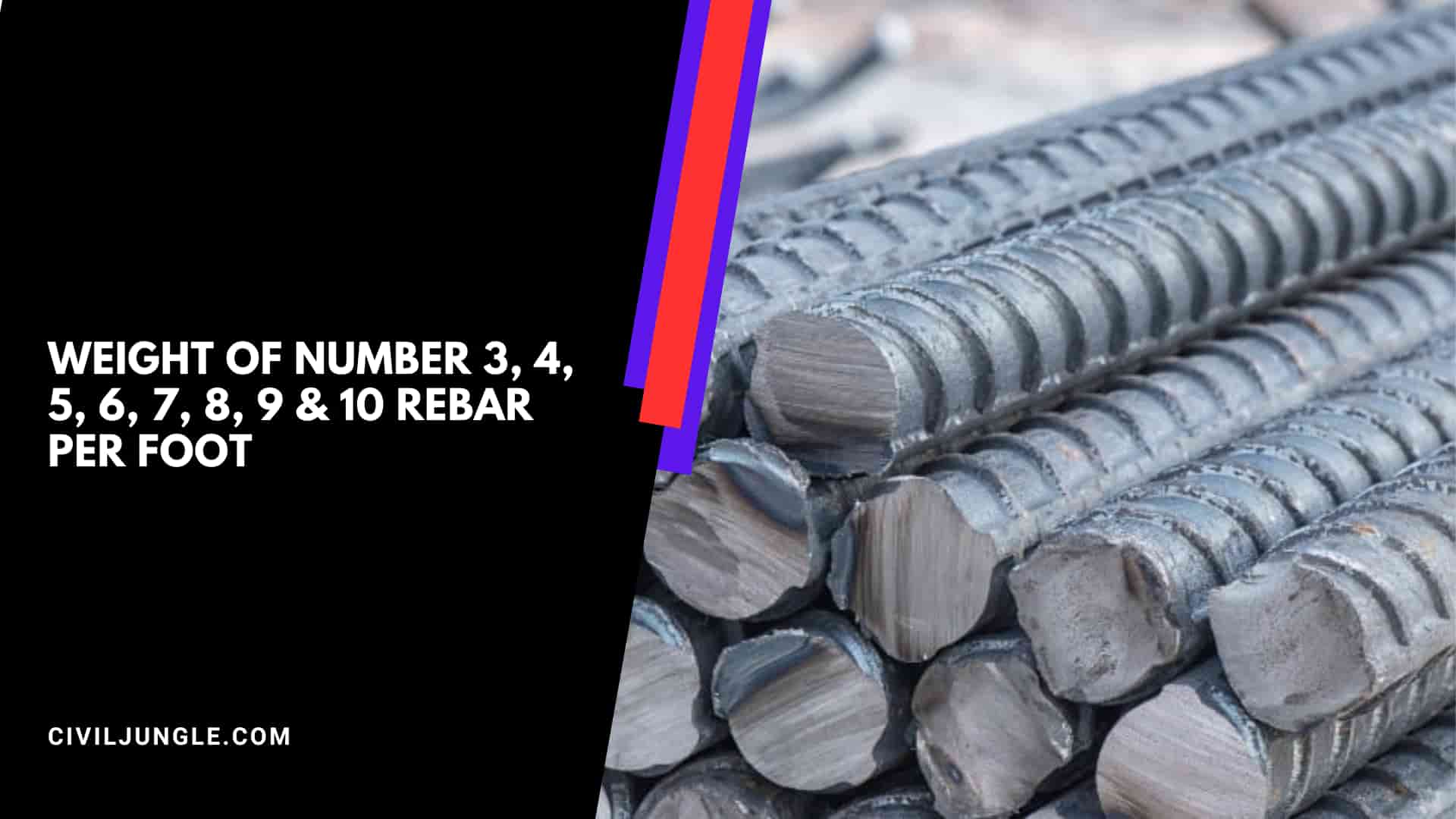
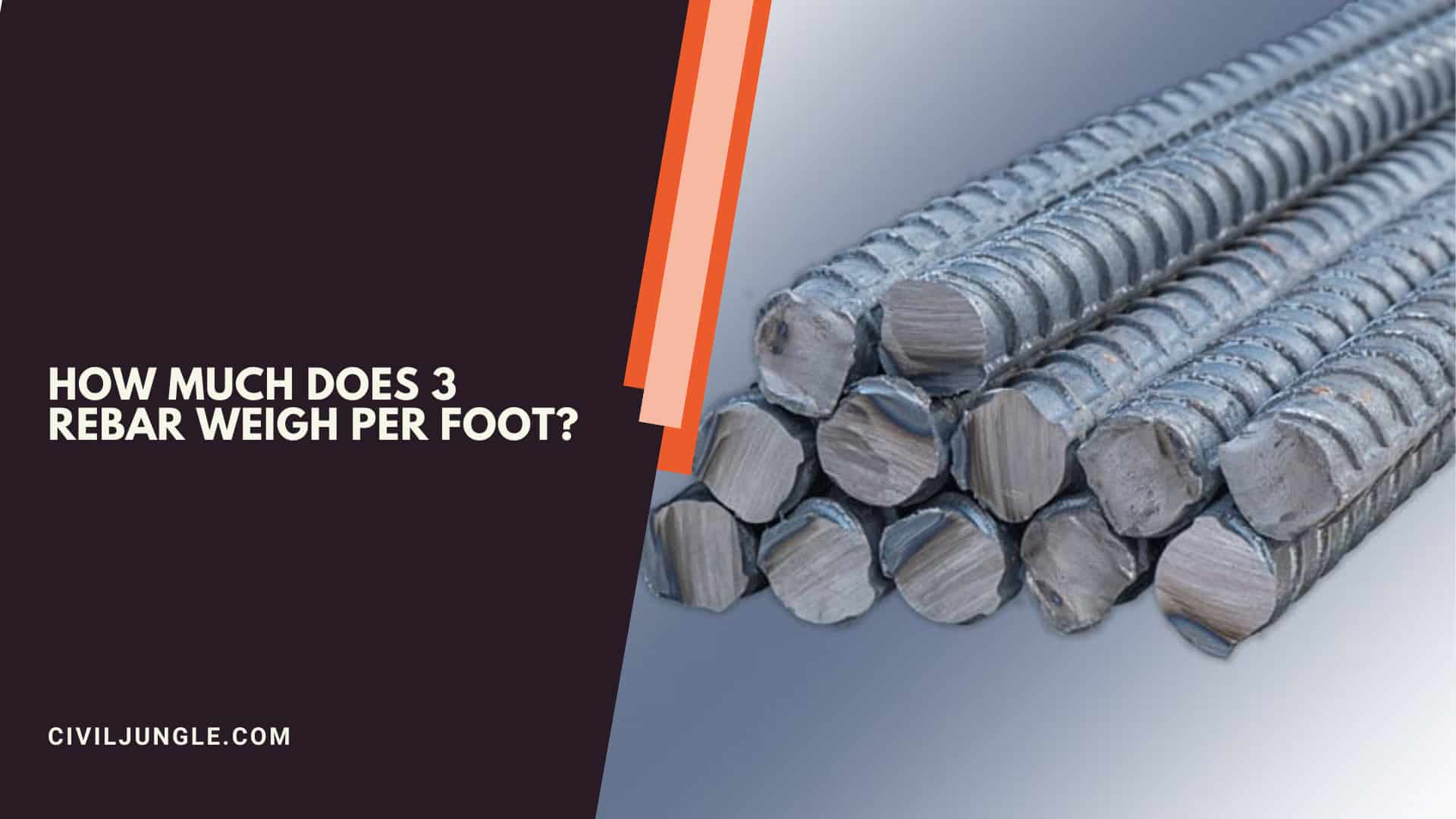
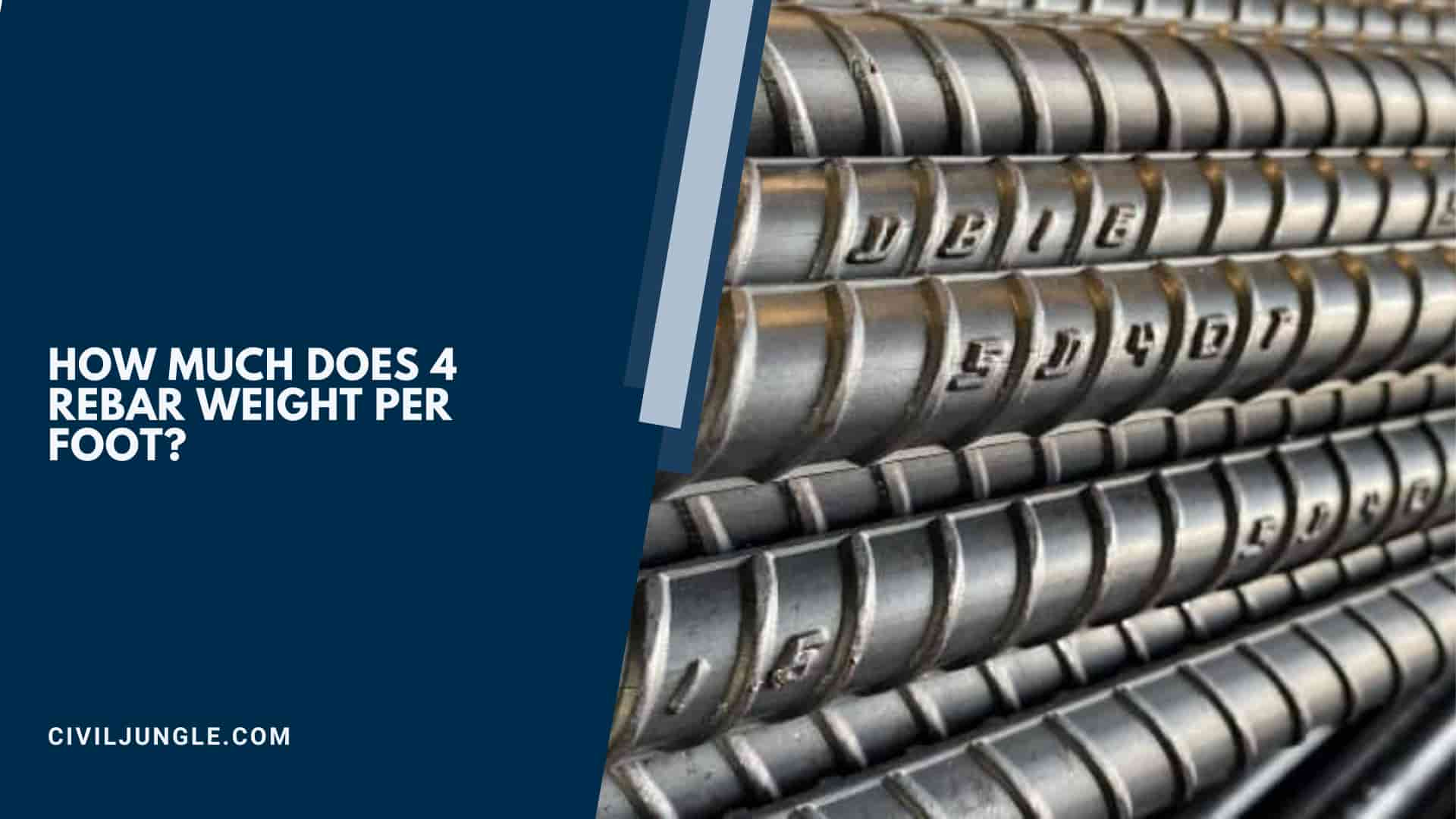
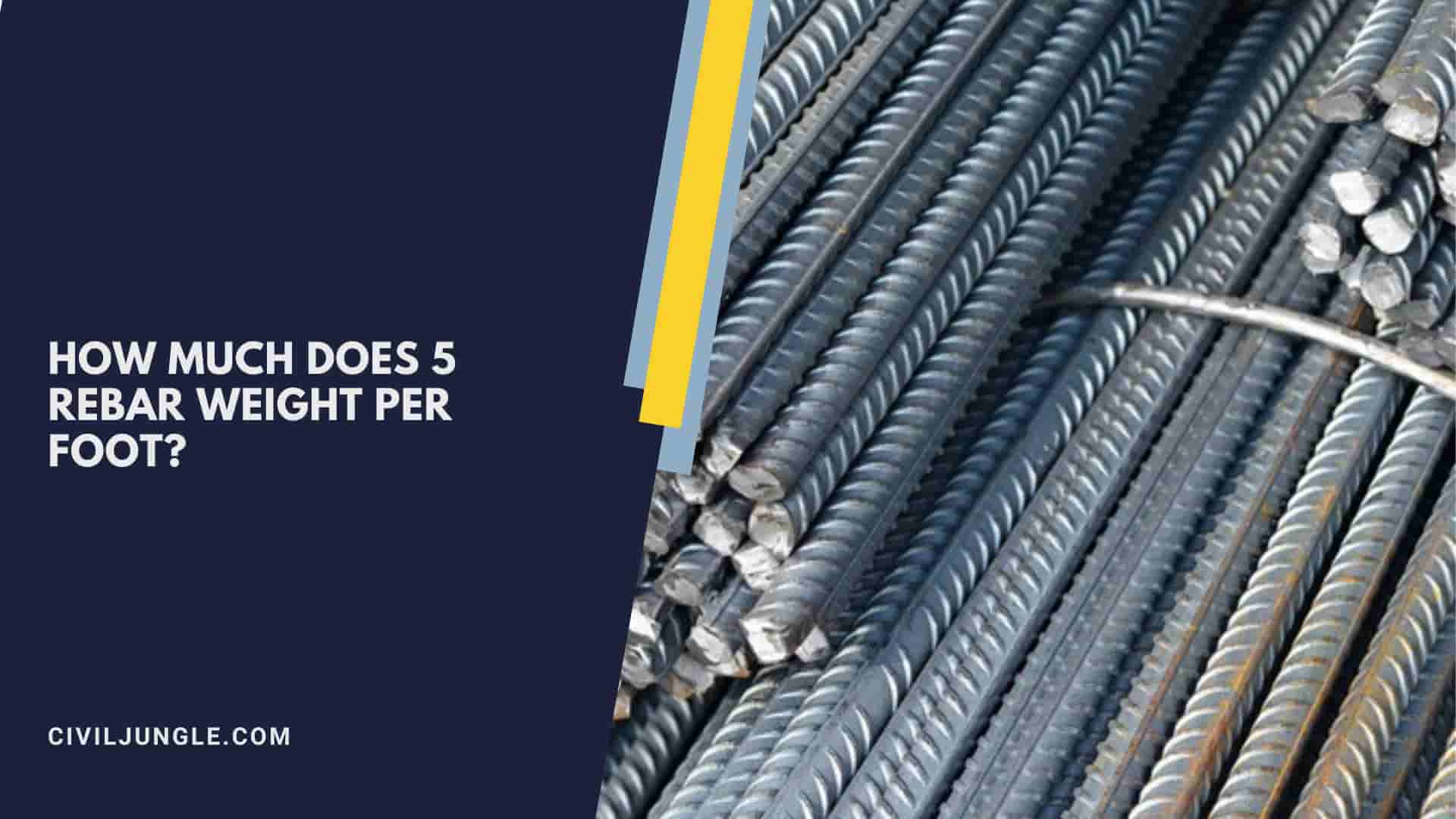
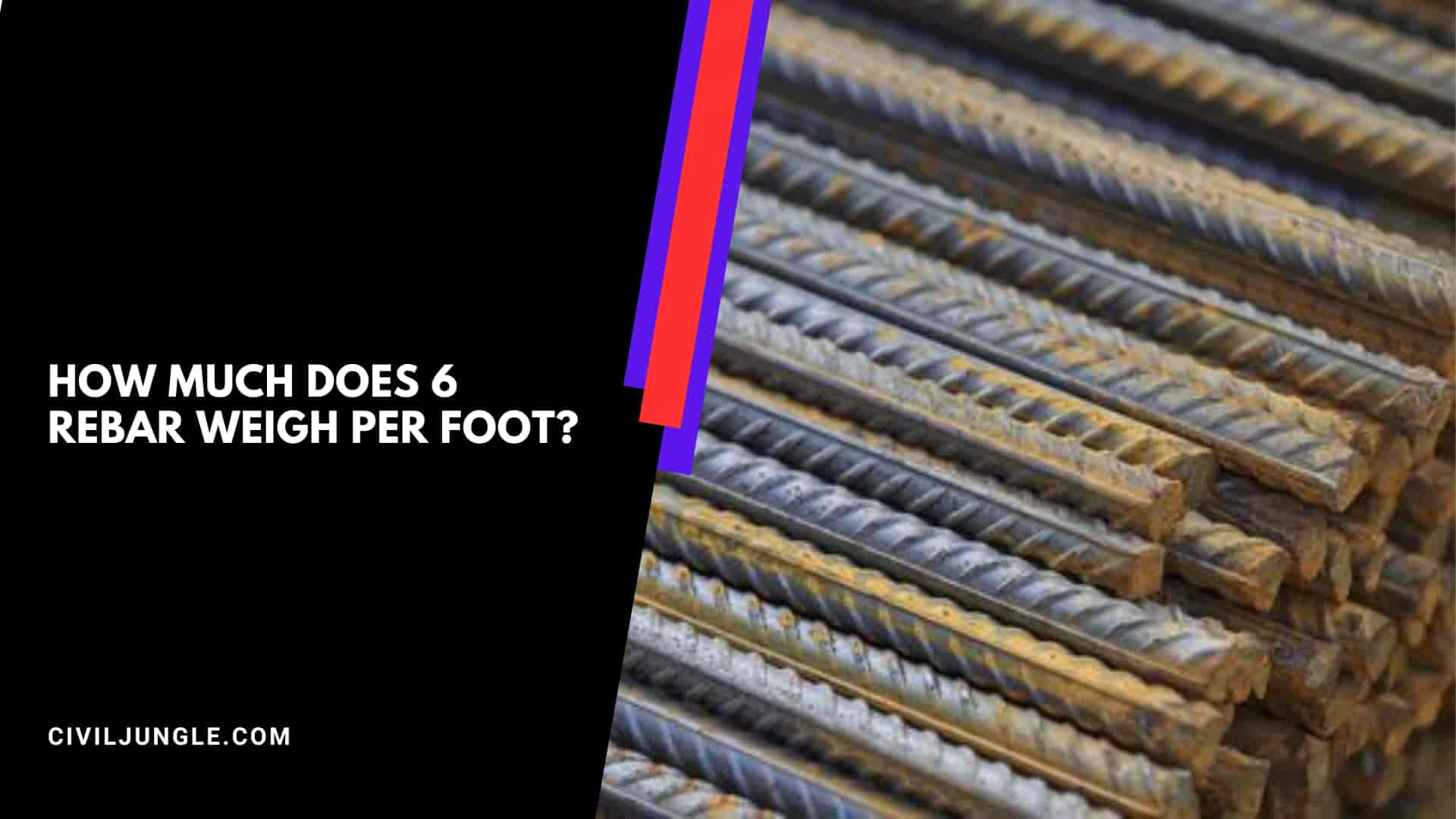
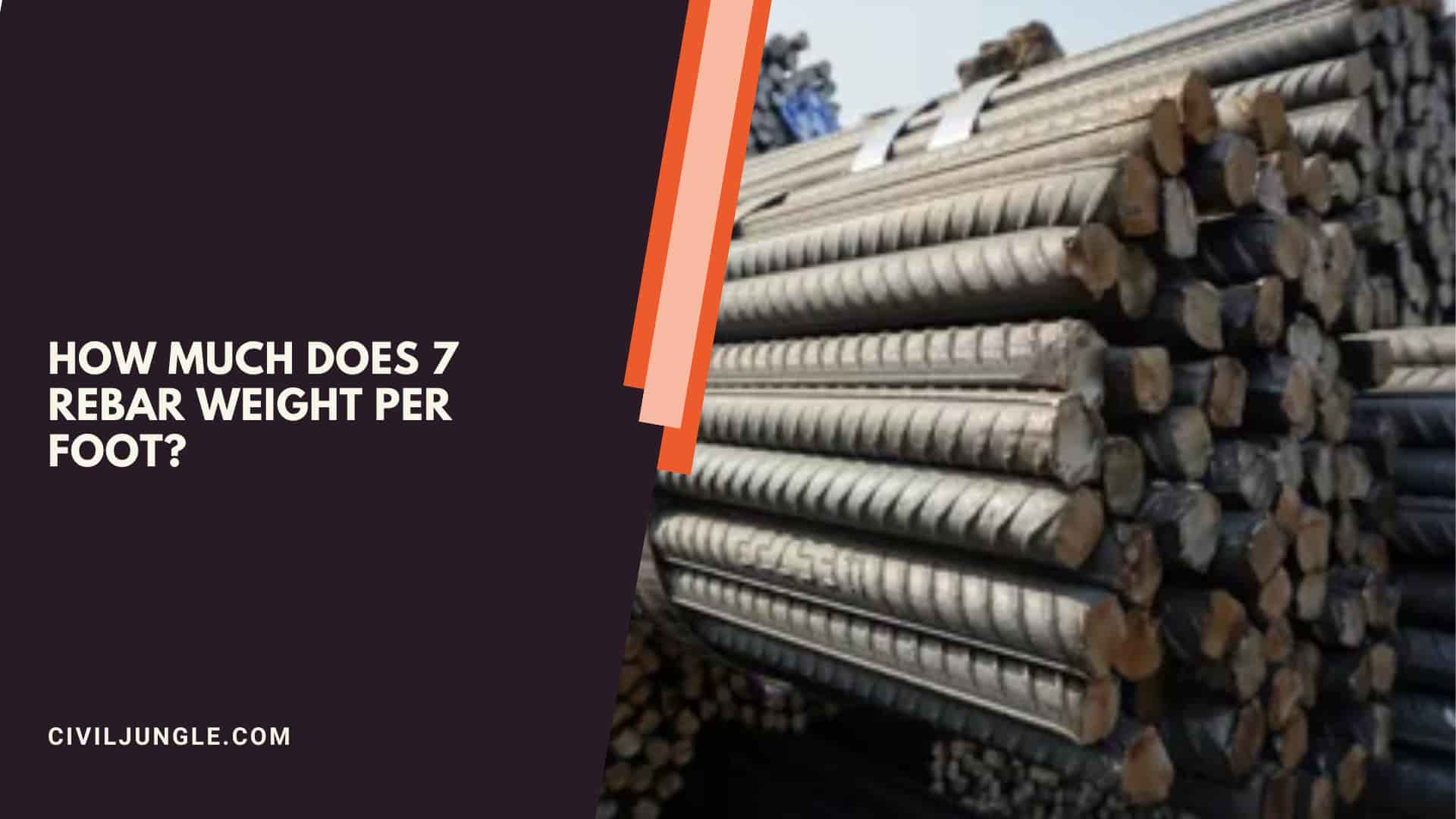
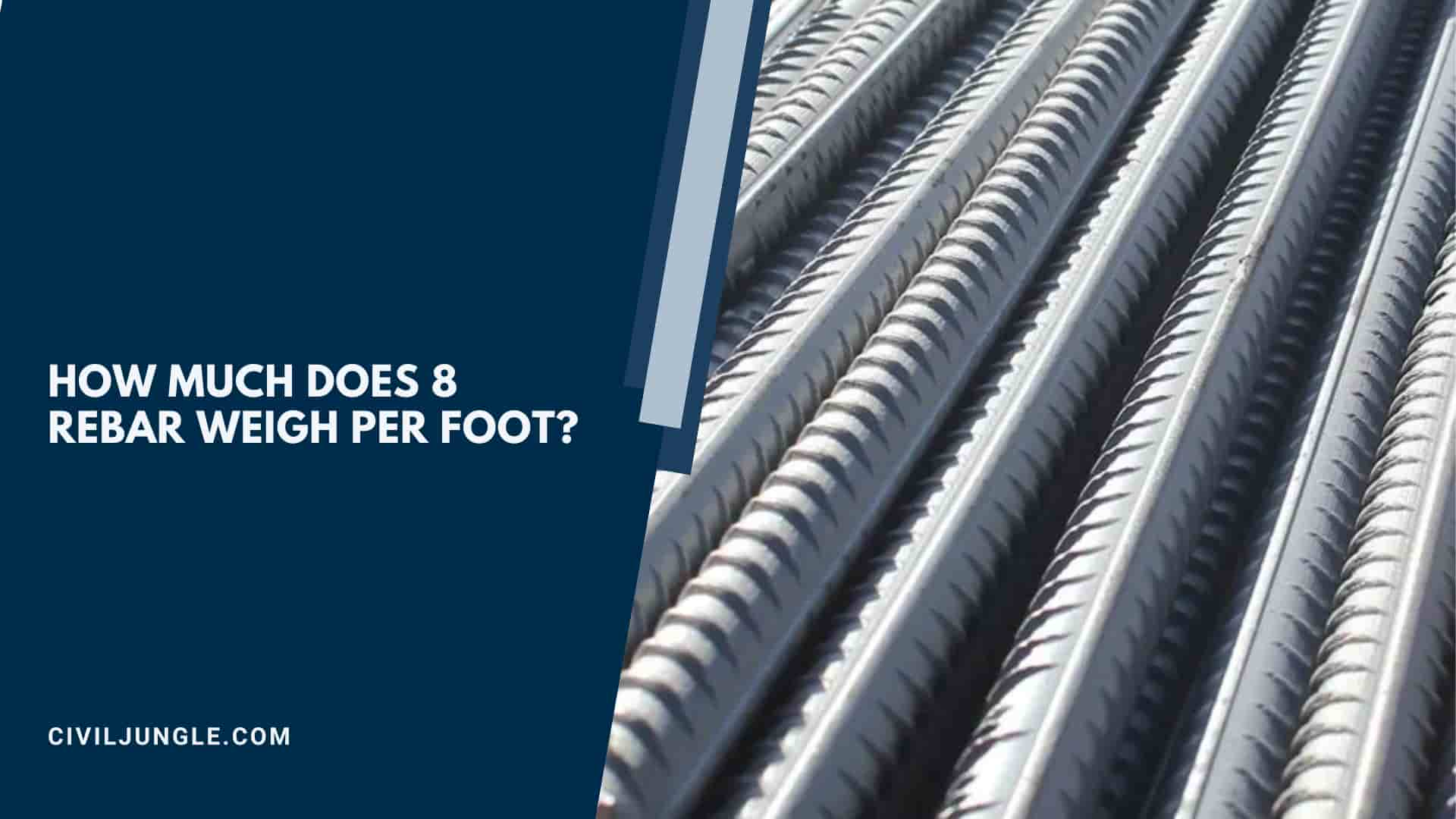
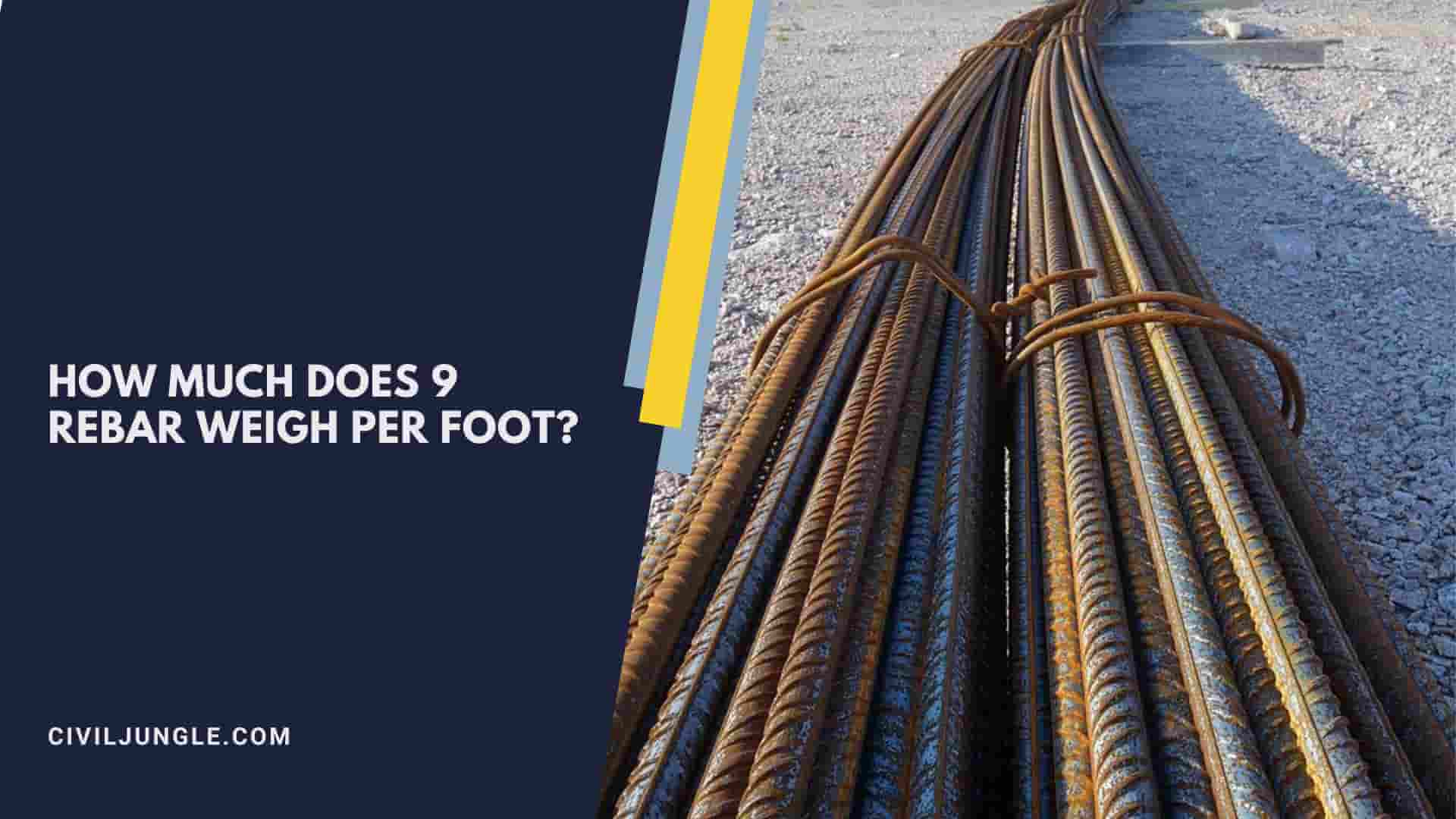
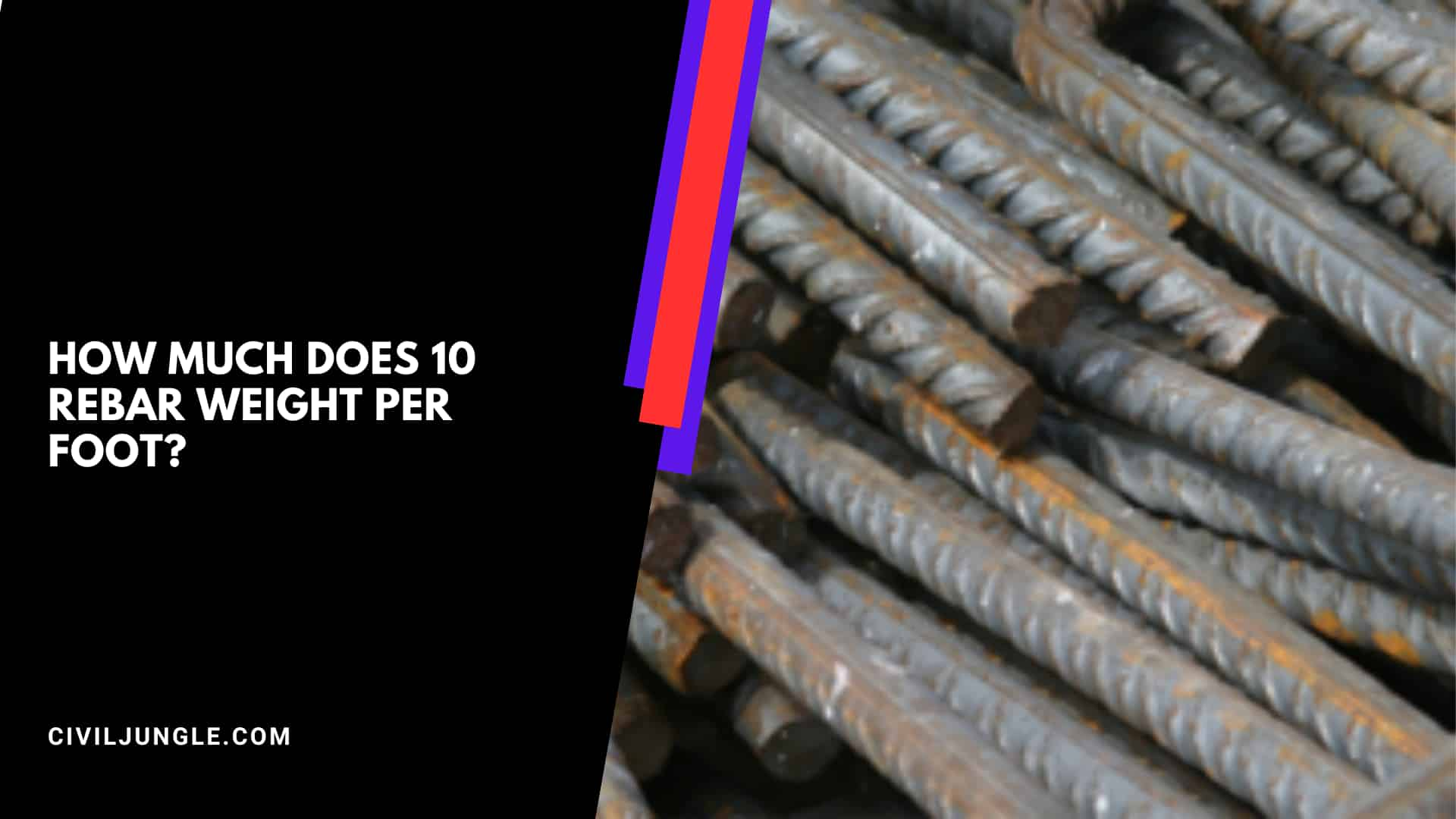
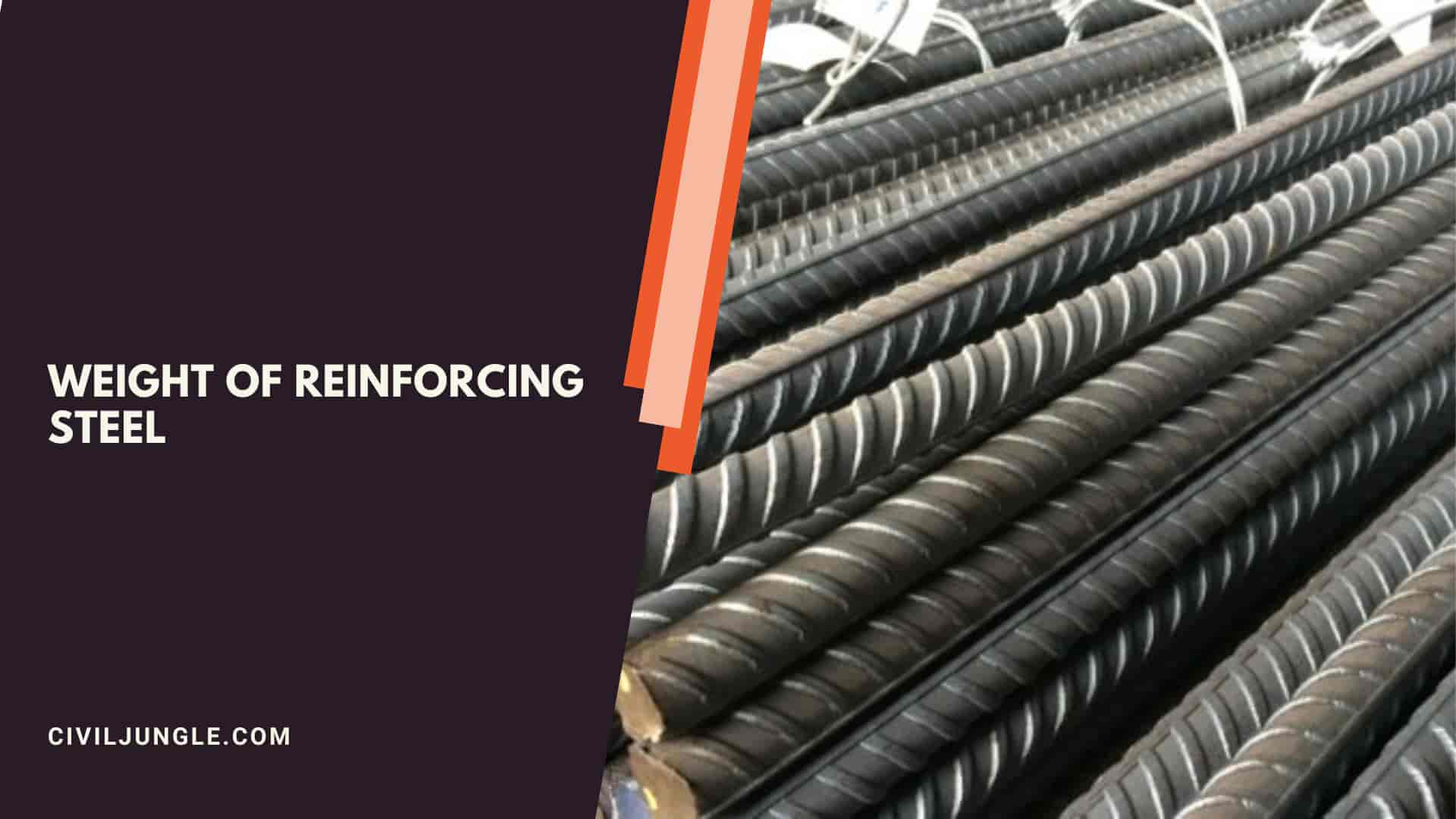
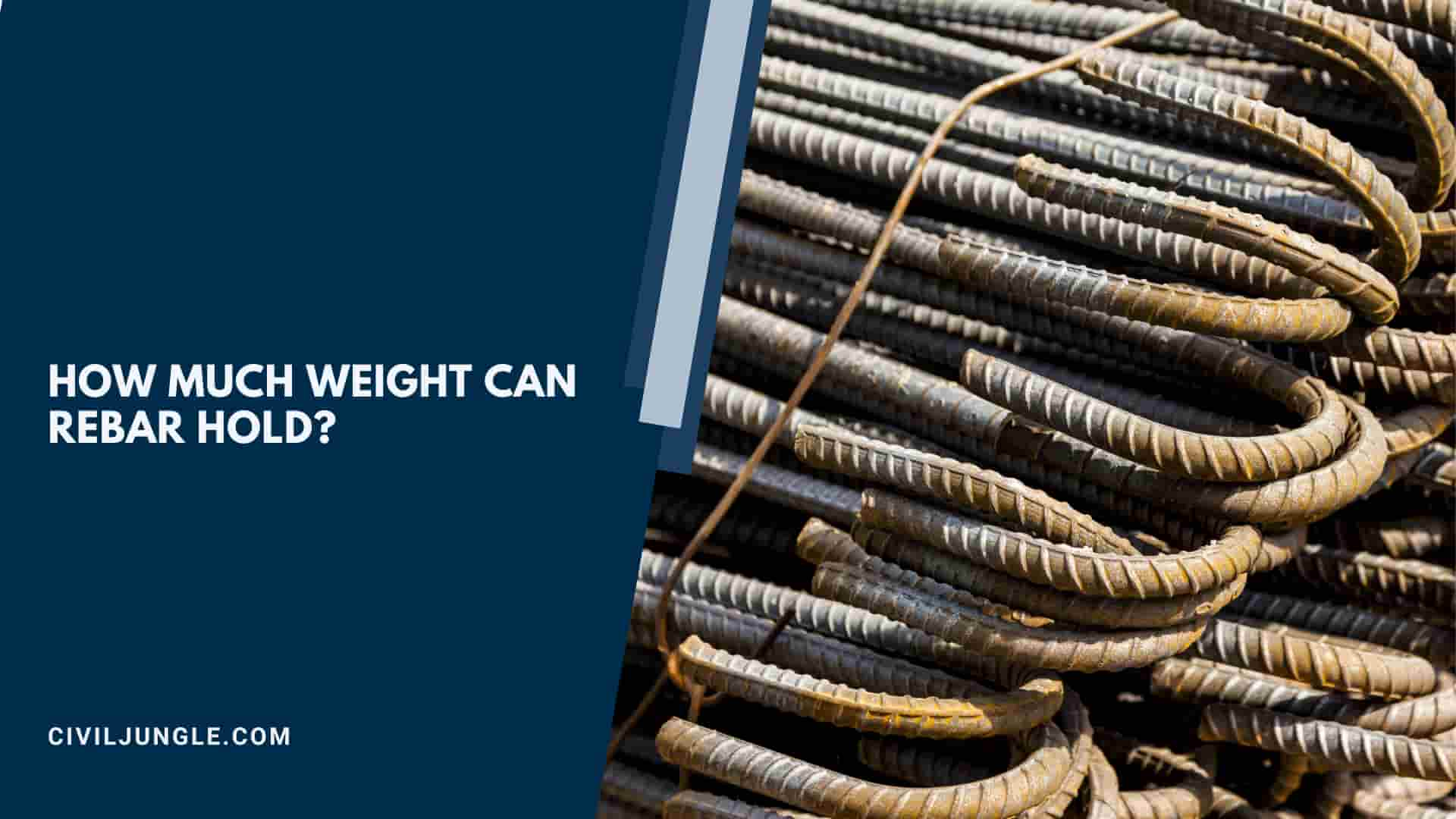
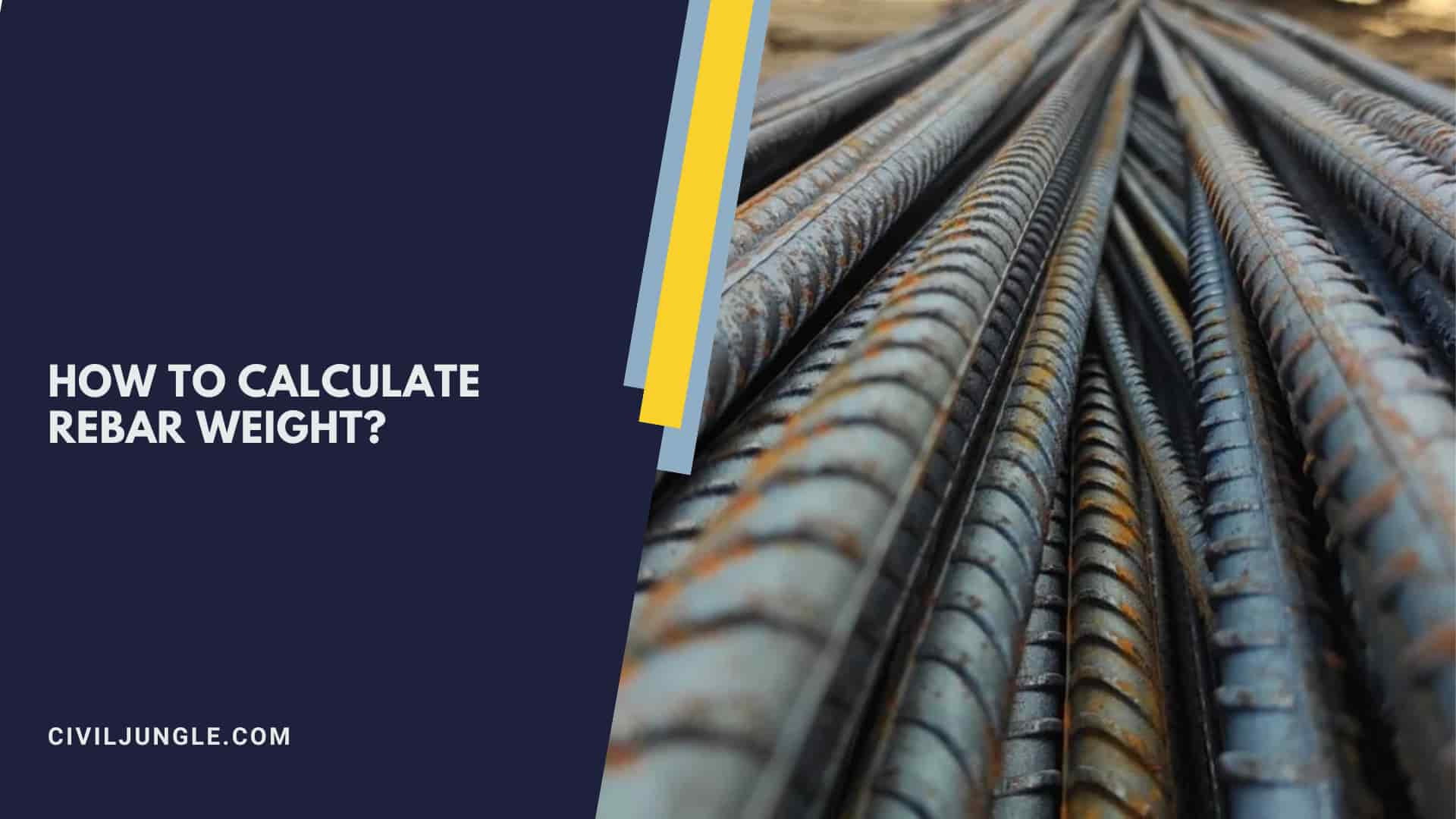
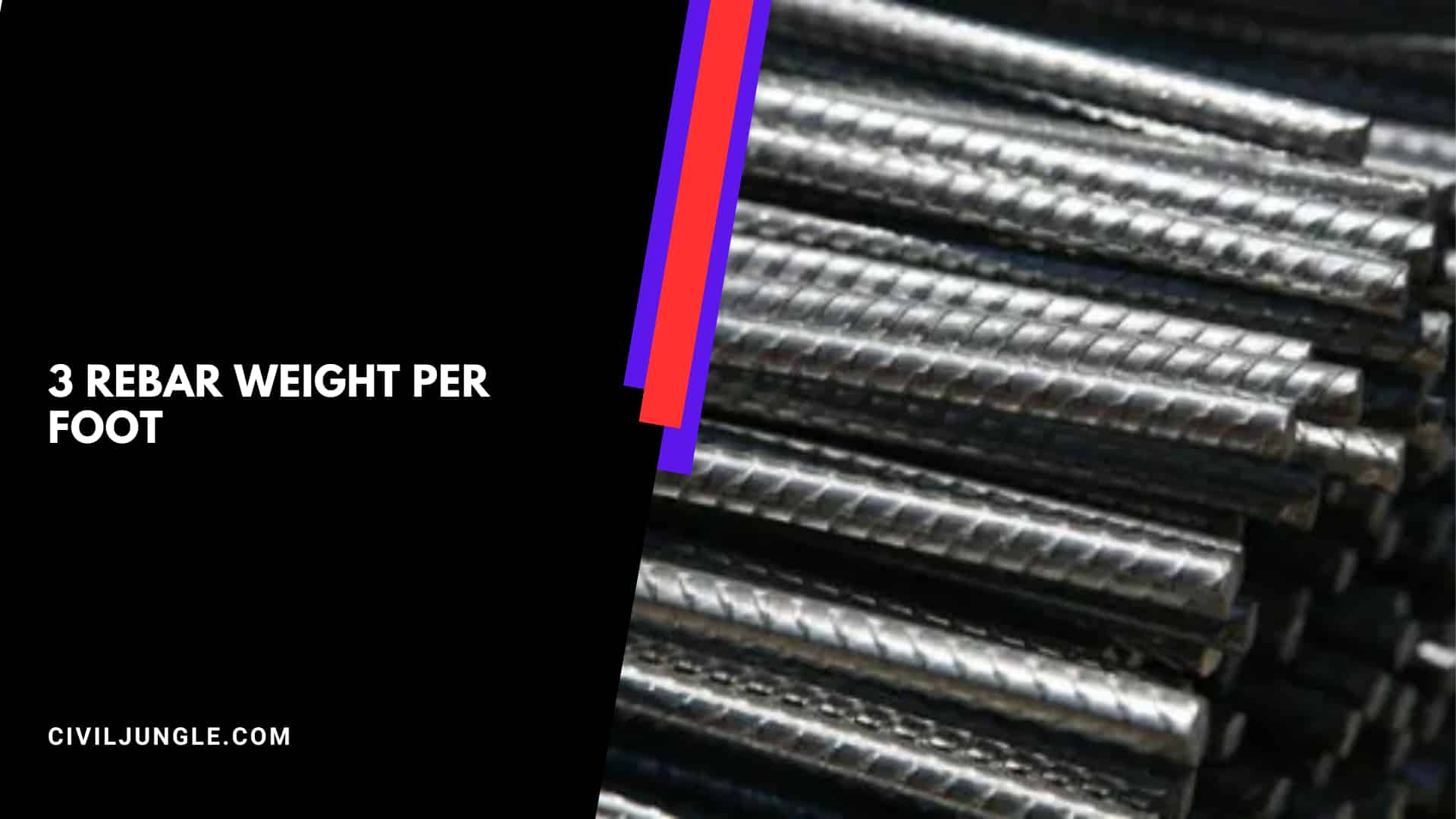
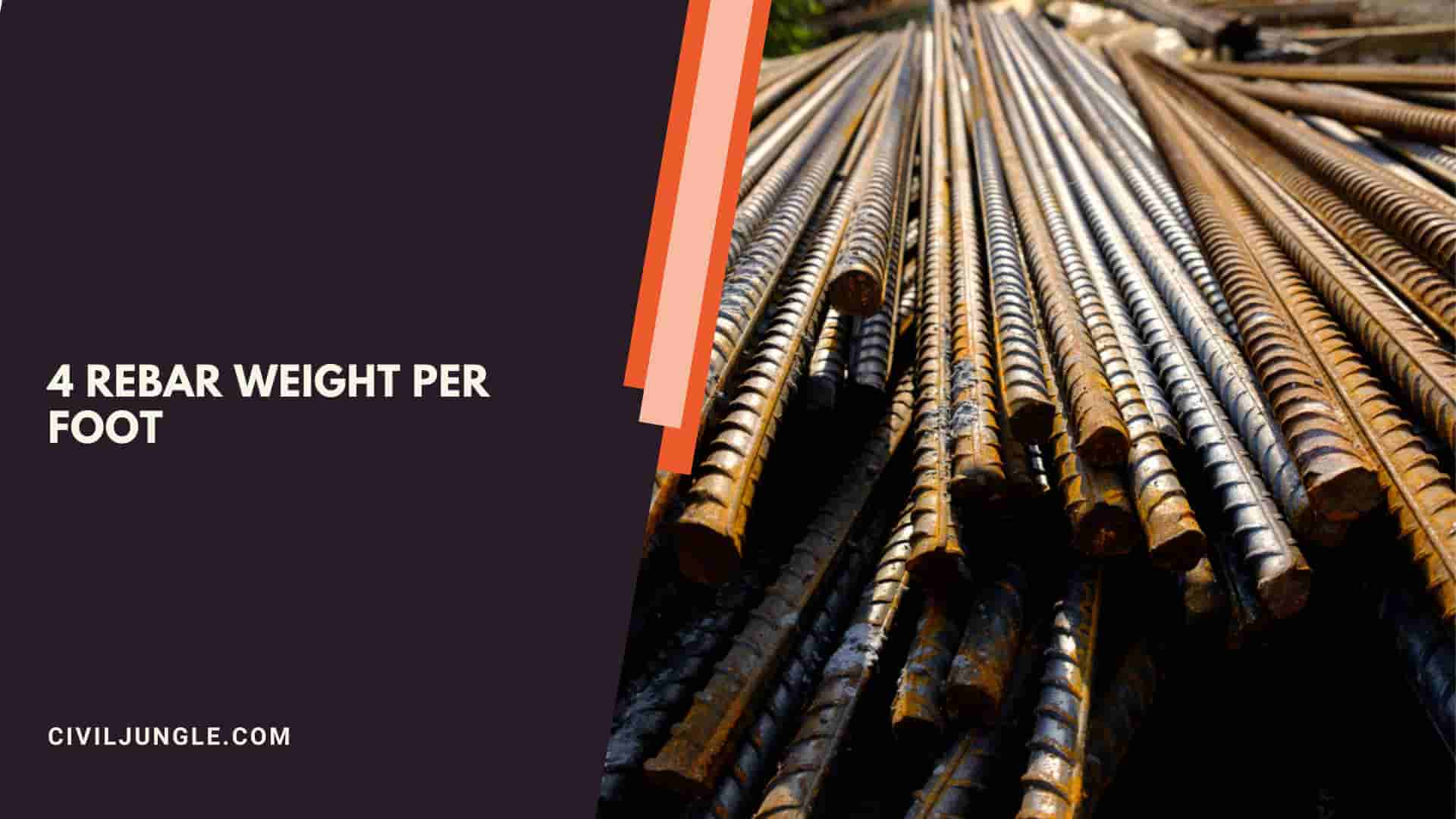
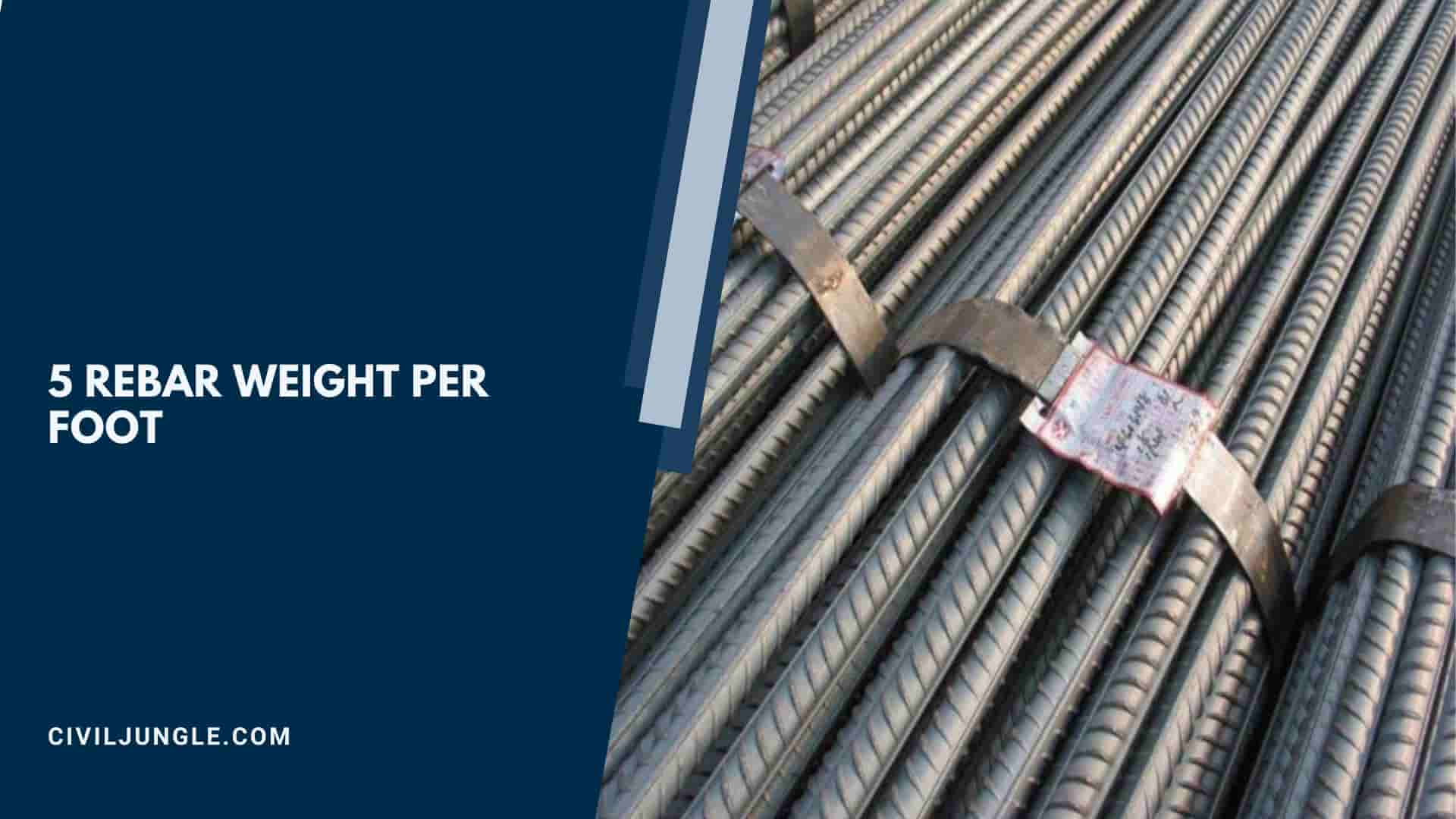

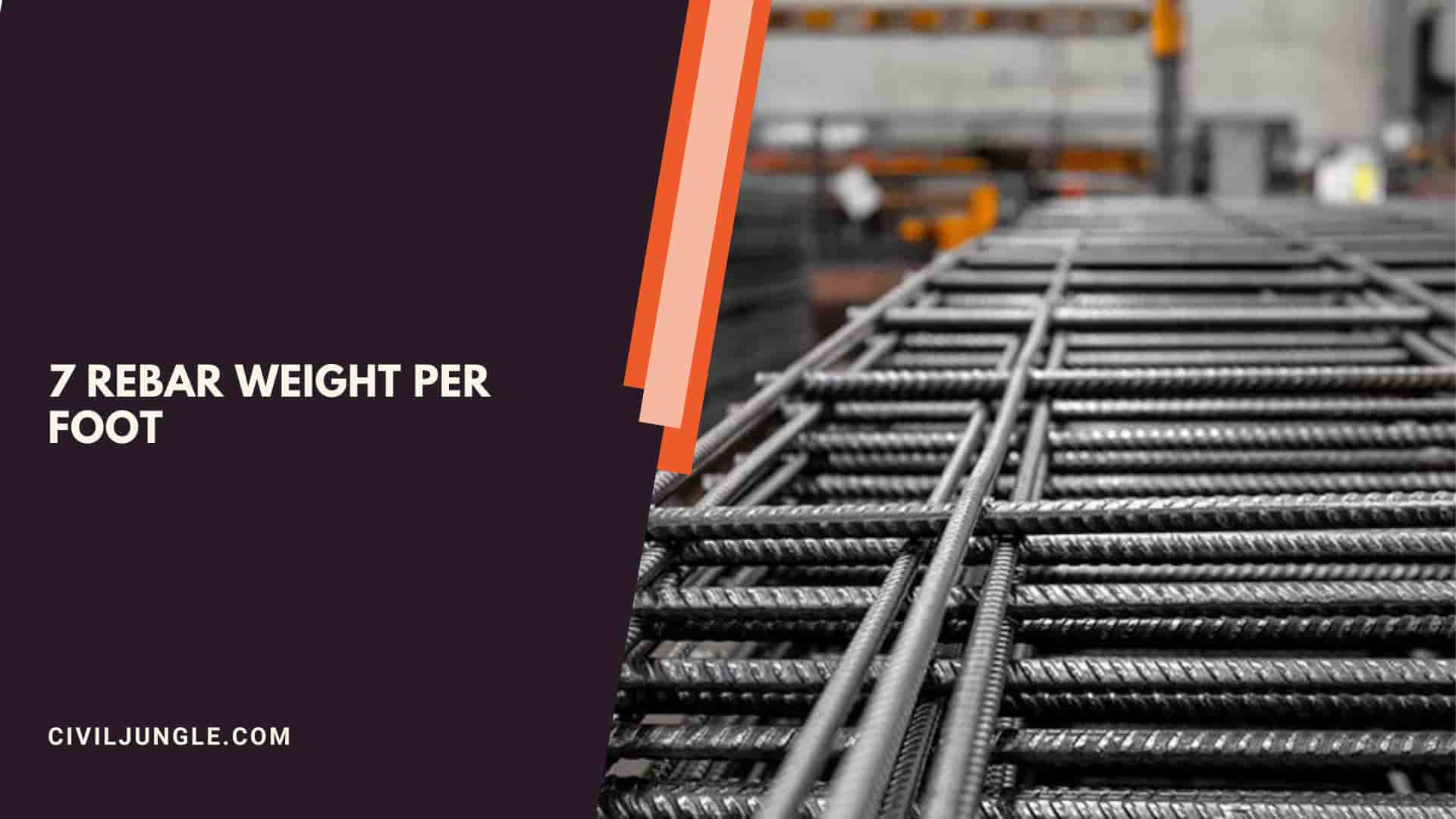
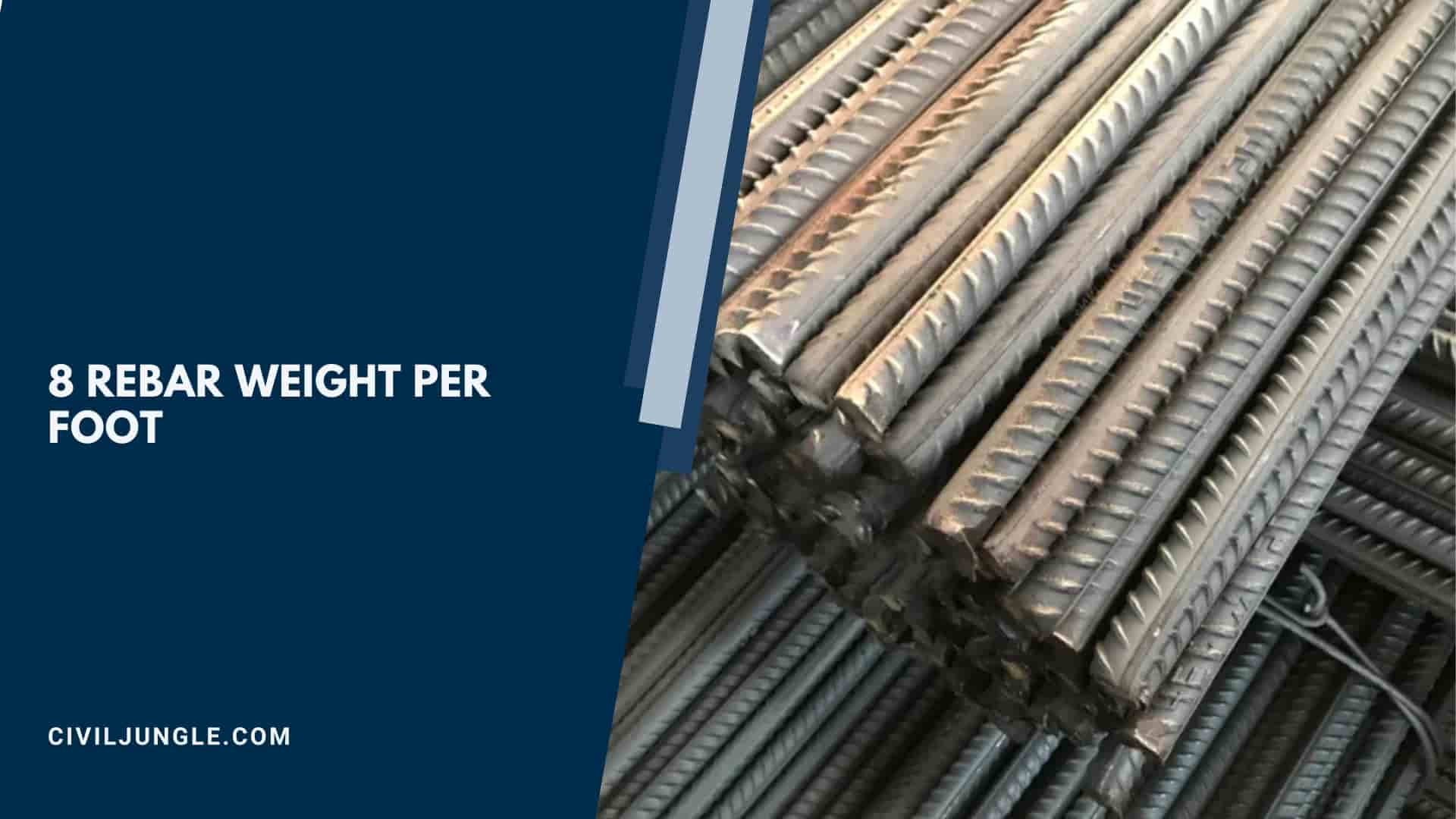
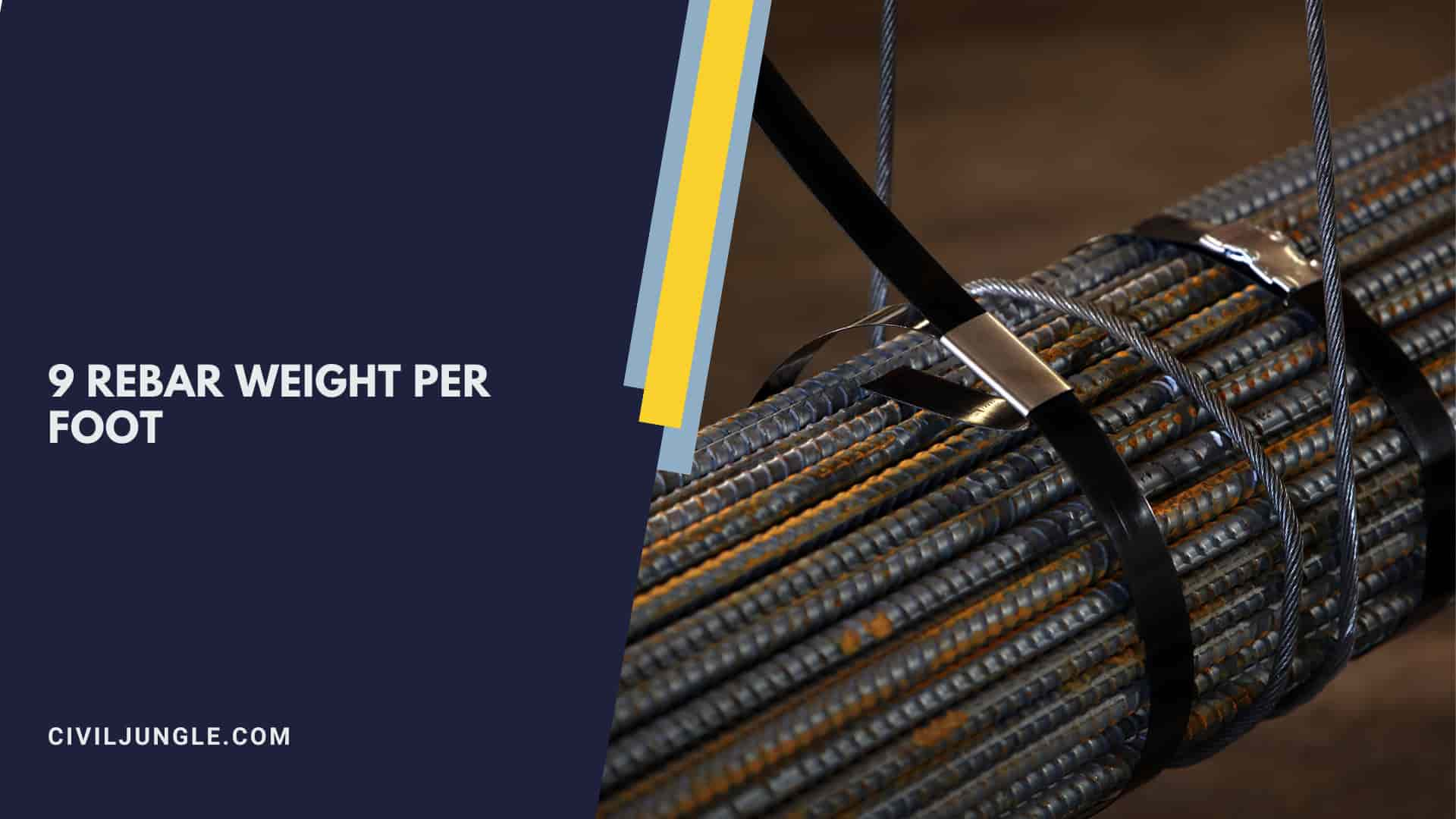
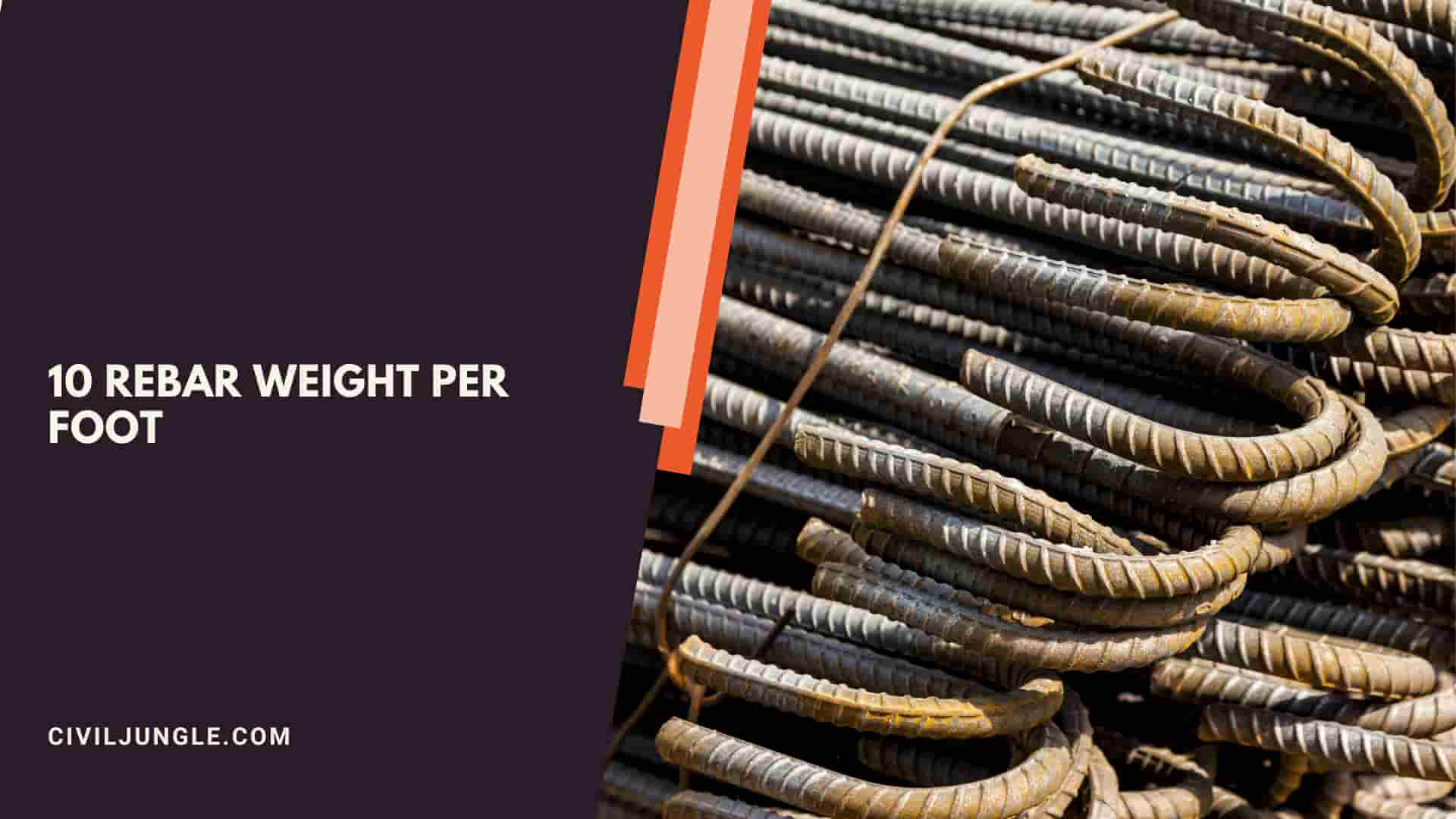
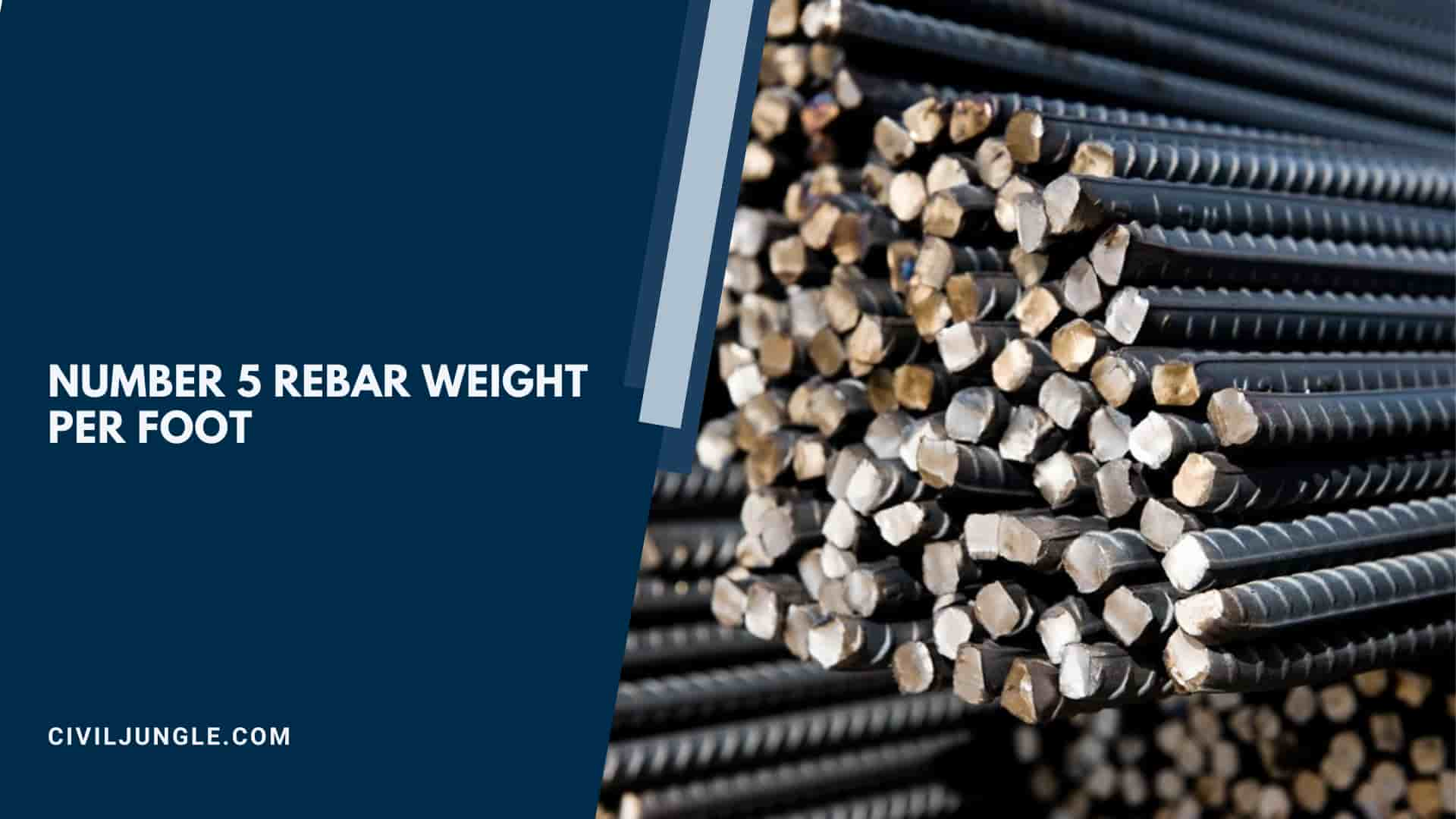

Leave a Reply